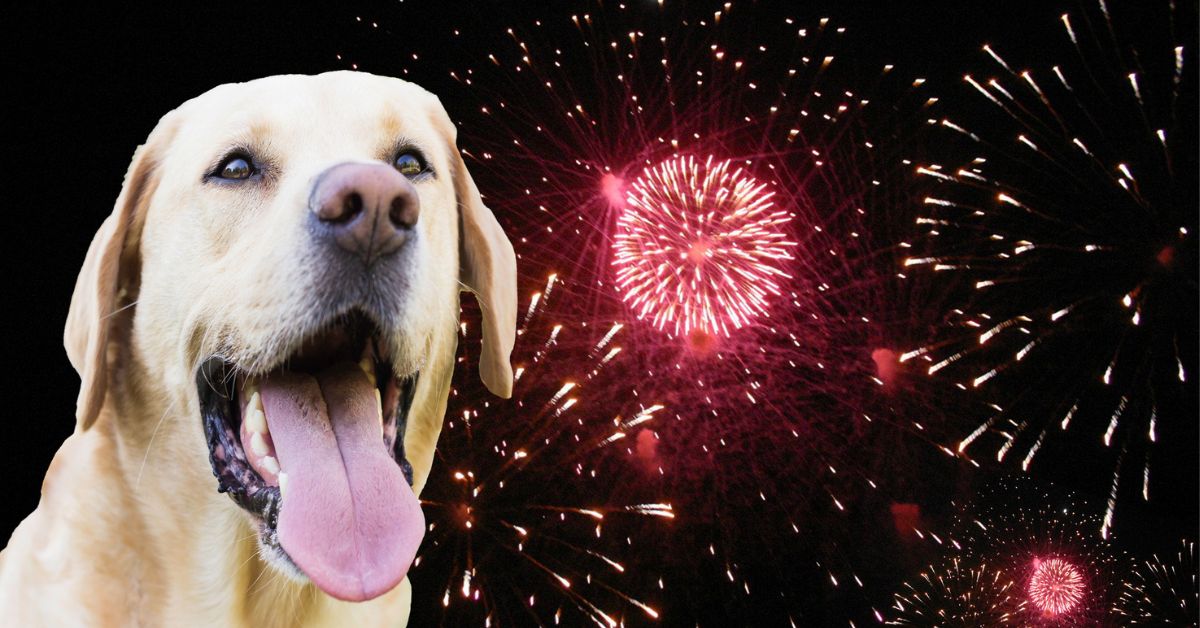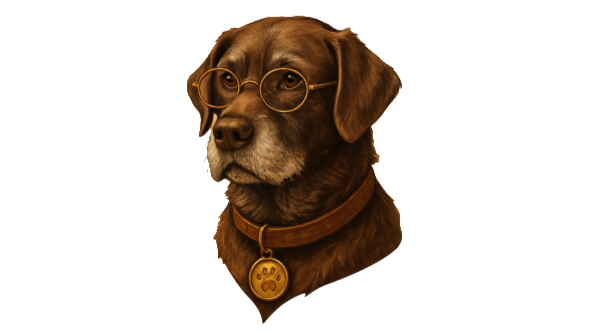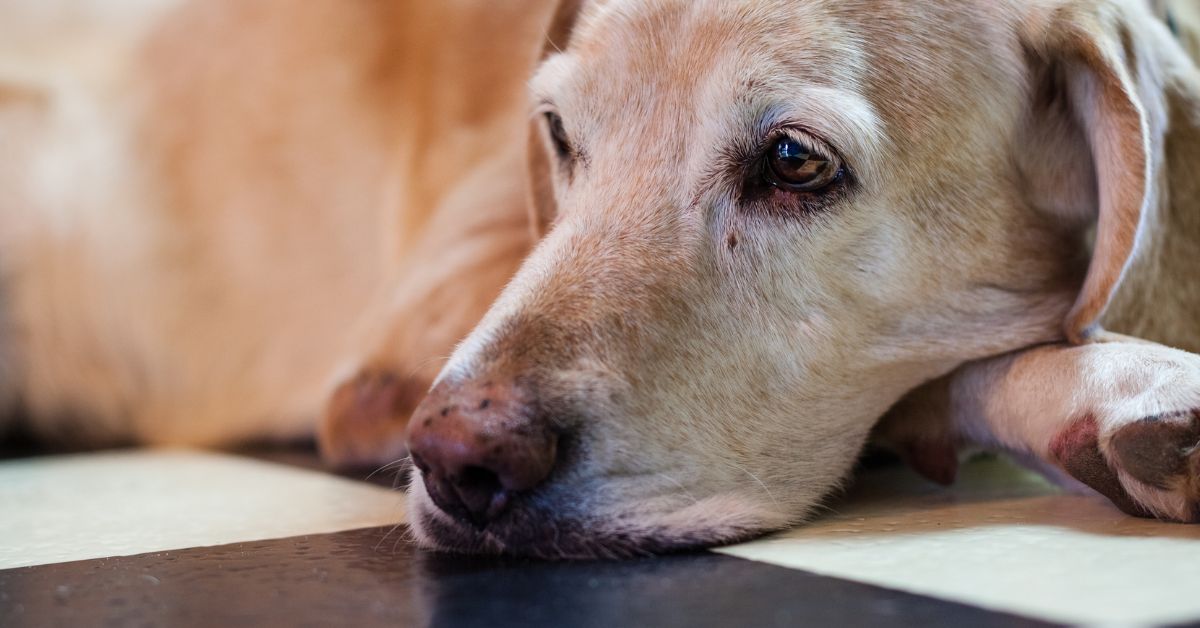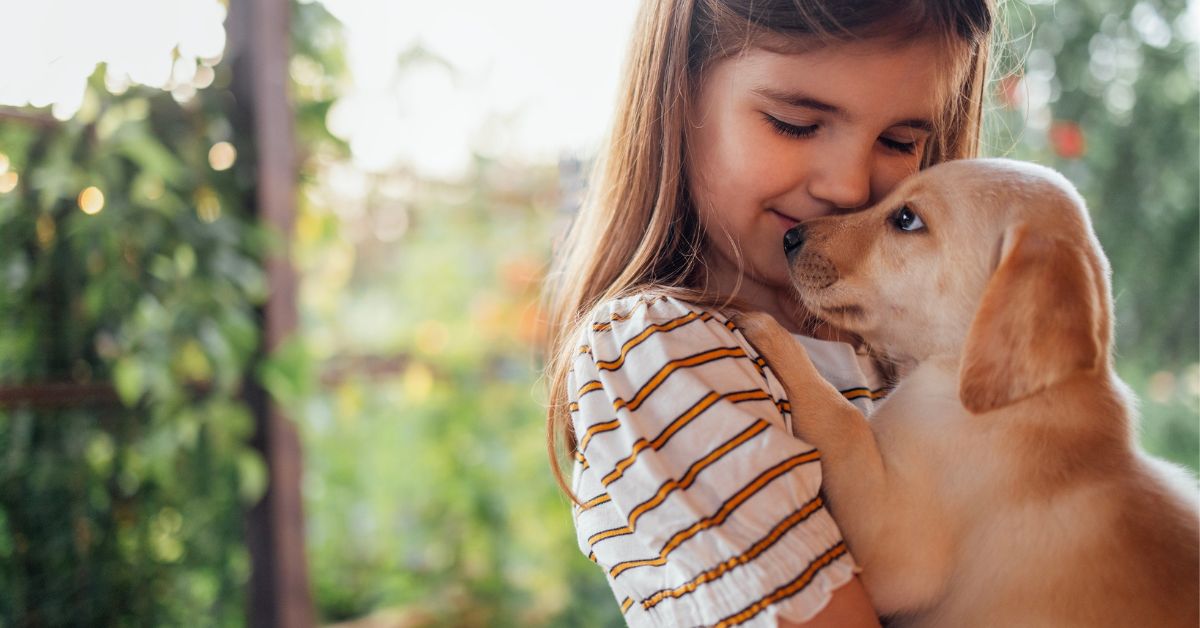
Fireworks Anxiety in Senior Labradors Retrievers: Coping Tips
For many people, fireworks represent pure celebration—a bright, exciting, and patriotic way to mark special holidays like the Fourth of July, New Year's Eve, and other festive occasions. The spectacular bursts of color and sound create memorable moments that families treasure for years. But for senior Labradors Retrievers, these same loud bursts of sound and flashing lights can be deeply unsettling, transformative experiences that turn joyful celebrations into episodes of genuine terror and distress.
As our beloved dogs age gracefully into their golden years, their ability to cope with environmental stressors often undergoes significant changes. What once might have been only mildly irritating or briefly startling during their younger, more resilient years can now feel completely overwhelming and genuinely frightening. Understanding these changes and learning how to support our senior Labs through firework anxiety isn't just about comfort—it's about preserving their mental health, physical well-being, and overall quality of life during their most vulnerable years.
The relationship between aging and stress sensitivity in dogs is complex and multifaceted, involving changes in brain chemistry, sensory processing, physical comfort, and emotional regulation. For senior Labradors specifically, their gentle, sensitive nature combined with age-related vulnerabilities creates the perfect storm for firework-related anxiety that can be both intense and long-lasting.
Understanding Why Senior Labrador Retrievers Are Particularly Vulnerable
Sensory Changes in Aging Dogs
As Labradors get older, their sensory systems undergo significant changes that affect how they perceive and process environmental stimuli. While their hearing may not be as sharp as it once was due to age-related hearing loss, sudden loud noises like fireworks can still feel incredibly jarring and disorienting. This seeming contradiction occurs because noise sensitivity and hearing acuity are different phenomena—dogs can have reduced overall hearing while still being hypersensitive to certain frequencies or volumes.
The aging auditory system often becomes less able to filter and process complex sounds effectively. Where a younger dog might hear fireworks as distinct individual sounds, a senior Lab might experience them as overwhelming walls of noise that their brain struggles to interpret and categorize. This processing difficulty can increase anxiety and confusion, making the experience significantly more distressing than it would be for a younger animal.
Neurological and Cognitive Changes
Senior dogs are also more vulnerable to stress and physical discomfort due to age-related changes in their nervous systems and brain chemistry. The production of stress-regulating neurotransmitters like serotonin and GABA often decreases with age, while stress hormones like cortisol may become more difficult to regulate effectively. This neurochemical imbalance makes older dogs less resilient to stressful experiences and more likely to develop lasting anxiety around triggering events.
Physical Comfort and Pain Considerations
The physical aspect of firework anxiety in senior Labs cannot be overlooked. Older dogs experiencing joint pain, arthritis, or other age-related physical discomforts may find that stress-induced behaviors like trembling, pacing, or attempting to hide actually worsen their physical pain. This creates a cycle where anxiety increases physical discomfort, which in turn heightens anxiety levels, making celebrations especially difficult for them to navigate successfully.
Common Reasons Senior Labrador Retrievers May Be More Sensitive to Fireworks
Understanding the specific factors that contribute to increased firework sensitivity in senior Labradors helps pet parents develop more effective management and support strategies.
Canine Cognitive Decline and Dementia
Canine cognitive decline, similar to dementia in humans, affects a significant percentage of senior dogs and can dramatically increase their sensitivity to environmental stressors like fireworks. This condition causes confusion, disorientation, and difficulty processing new or sudden stimuli, especially when exposed to unfamiliar or unexpected sounds.
Dogs with cognitive decline may have trouble distinguishing between real threats and harmless noises, leading them to interpret fireworks as genuine dangers requiring immediate escape or defense responses. They may also have difficulty remembering that fireworks are temporary and harmless, causing them to remain in high-stress states for extended periods.
The confusion and memory issues associated with cognitive decline can make it impossible for affected dogs to learn that fireworks end eventually and pose no real threat. Each firework display may feel like the first time they've experienced such sounds, preventing them from developing coping mechanisms or positive associations with these events.
Decreased Stress Resilience
Aging dogs generally have a significantly lower tolerance for stress and may react more intensely to situations that they previously handled with minimal difficulty. This decreased resilience stems from multiple factors including changes in hormone production, reduced physical energy reserves, and alterations in brain chemistry that affect emotional regulation.
The stress response system that once helped younger dogs quickly recover from startling experiences becomes less efficient with age. Senior Labs may find themselves stuck in high-stress states for longer periods, unable to return to baseline calm as quickly as they once could. This prolonged stress response can be exhausting and may contribute to other health issues if not properly managed.
Physical Pain and Mobility Issues
Joint pain, arthritis, and other age-related physical conditions can significantly complicate firework anxiety in senior Labs. When dogs experience panic or fear, their natural responses often involve physical movements like running, hiding, jumping, or pacing—behaviors that can worsen existing joint pain or inflammation.
The anticipation of pain from movement can create additional anxiety layers, where dogs become afraid not only of the fireworks themselves but also of their own physical responses to fear. This complex interaction between emotional and physical distress requires careful management to address both aspects of their discomfort.
Senior Labs with mobility limitations may also feel more vulnerable and less able to escape from perceived threats, intensifying their anxiety about situations they cannot physically flee from effectively.
Recognizing Signs of Firework Anxiety in Senior Labrador Retrievers
Obvious Behavioral Indicators
If your senior Lab starts trembling, hiding, whining, or pacing during loud noises, it's very likely that fireworks and other sharp sounds are triggering significant anxiety responses. These behaviors represent their attempts to cope with overwhelming stress and should never be dismissed as attention-seeking or dramatic behavior.
Trembling or shaking often begins before fireworks start, as dogs may pick up on subtle cues that celebrations are approaching—increased human activity, changes in routine, or even the smell of fireworks being set up in the neighborhood.
Hiding behaviors might include retreating to closets, bathrooms, basements, or any small, enclosed space where they feel more secure. Some dogs may attempt to dig or create hiding spots in inappropriate locations.
Vocalization through whining, whimpering, or even howling represents their attempt to communicate distress and seek comfort from their human family members.
Pacing or restlessness indicates their inability to settle and find comfort, as their stress response keeps them in a constant state of alertness and agitation.
Subtle Signs Often Missed
Many senior dogs also display more subtle signs of firework anxiety that can be easily overlooked:
Loss of appetite before, during, or after firework events, as stress hormones suppress normal hunger cues and digestion.
Changes in elimination habits, including accidents in the house or reluctance to go outside for normal bathroom breaks.
Excessive panting when the temperature doesn't warrant it, indicating stress-induced respiratory changes.
Destructive behaviors like scratching at doors, walls, or furniture in attempts to escape or find security.
Clinginess or attention-seeking behaviors where normally independent dogs suddenly become unable to be alone or away from their humans.
Comprehensive Preparation Strategies
Pre-Event Planning and Environment Modification
Planning ahead can make a tremendous difference in your senior Lab's experience during firework celebrations. Simple changes implemented well before the festivities begin can prevent stressful situations from escalating into full-blown panic episodes.
Exercise and Energy Management
Exercise your dog earlier in the day with longer, more intensive activities than usual. A calm, well-exercised Labrador is significantly less likely to feel agitated later on. Consider taking a longer morning walk, engaging in gentle swimming if available, or enjoying extended playtime before dusk when fireworks typically begin.
The goal is to help your senior Lab use their available energy in positive ways while building up their natural relaxation hormones through enjoyable physical activity. This physiological preparation can help them enter the evening in a calmer, more relaxed state.
Close all windows and curtains throughout your home to help block both noise and the flashes of light that can startle sensitive dogs. Consider using heavy blankets or additional sound-dampening materials around windows in rooms where your dog typically spends time.
Create multiple safe spaces throughout your home so your Lab has options for where to retreat. Some dogs prefer small, enclosed spaces like closets or bathrooms, while others feel safer in open areas where they can see escape routes.
Safety and Identification Precautions
Double-check identification tags and ensure they're securely attached to your dog's collar. In case your dog does get spooked and attempts to run or escape, current identification dramatically increases the chances of a safe return home.
Consider having backup identification methods such as a collar with your phone number written in permanent marker, or ensure microchip information is current and easily accessible to veterinary clinics or animal shelters.
Advanced Preparation Techniques
Gradual desensitization can be helpful for dogs with predictable firework anxiety. This involves playing recorded firework sounds at very low volumes during positive activities like meal times or play sessions, gradually increasing volume over weeks or months as your dog becomes comfortable with the sounds.
Create positive associations with celebration-related activities by providing special treats, engaging in favorite activities, or offering extra attention during times when neighbors might be setting off practice fireworks or when you hear distant celebrations.
Immediate Support Strategies During Firework Events
Creating Optimal Safe Spaces
Designate a quiet, cozy area in your home—such as a small interior room, walk-in closet, or comfortable crate filled with familiar blankets and favorite toys—to give your dog a secure retreat when fireworks begin. This space should be prepared in advance and accessible at all times during celebration periods.
The ideal safe space combines physical comfort with psychological security. Include items that smell like you, provide soft bedding for joint comfort, and ensure the area is away from windows and external walls where noise might be loudest.
Some senior Labs prefer spaces where they can see what's happening around them, while others feel safer in completely enclosed areas. Observe your dog's preferences and provide options that match their individual comfort needs.
Sound Management and Masking
Use white noise, calming music, or specific sound masking techniques to help minimize the impact of sudden firework noises. Try playing classical music, nature sounds, or white noise at moderate volumes to create a consistent audio environment that masks the unpredictable pops and booms outside.
Some streaming services and apps offer playlists specifically designed for anxious dogs, featuring music with frequencies and rhythms scientifically chosen to promote relaxation and reduce stress responses.
Television or radio programming can also provide familiar, comforting background noise that helps normalize the audio environment during firework events.
Physical Comfort and Pressure Therapy
Try gentle pressure techniques or compression garments that can provide the comforting sensation many anxious dogs crave. A snugly wrapped blanket, commercial anxiety wrap, or even allowing your dog to rest under a table or in other confined spaces can sometimes provide the physical pressure that helps them feel more secure.
Gentle massage or Touch techniques, if your dog enjoys physical contact during stress, can help activate the parasympathetic nervous system and promote relaxation responses.
Human Presence and Emotional Support
Stay close and offer consistent, calm comfort without overwhelming your anxious dog with too much attention or energy. Your calm presence can be incredibly reassuring, but it's important to model the relaxed behavior you want your dog to adopt.
Speak gently and maintain relaxed body language yourself, as dogs are incredibly sensitive to human emotional states and can pick up on your anxiety if you're worried about their reactions.
Never scold your dog for showing fear or anxiety, as this can worsen their stress and damage their trust in you as a source of comfort and security during difficult times.
Professional Intervention and Medical Support
Veterinary Consultation for Severe Cases
For dogs with severe firework anxiety, consult your veterinarian about anti-anxiety medications, calming supplements, or other medical interventions that might provide relief. This is particularly important if your senior Lab has had extreme reactions in the past, such as injuring themselves while trying to escape, or if their anxiety significantly impacts their health or quality of life.
Anti-anxiety medications can be prescribed for short-term use during predictable firework events, or for longer-term management if your dog experiences anxiety around multiple types of celebrations throughout the year.
Supplement and Natural Remedy Options
Discuss calming supplements such as L-theanine, melatonin, or other natural anxiety-reducing compounds that might help take the edge off your senior Lab's stress responses without the side effects of prescription medications.
Some dogs benefit from pheromone diffusers (Adaptil) that release calming scents designed to reduce anxiety in dogs of all ages.
Behavioral Therapy and Training
Consider working with a certified dog behaviorist or trainer who specializes in anxiety issues to develop long-term strategies for managing your senior Lab's firework fears.
Counter-conditioning and desensitization programs can be particularly effective when started well before firework season and continued consistently over time.
Expanding Awareness: Other Noisy Holidays and Events
Year-Round Celebration Management
July 4th may be the loudest and most challenging day of the year for anxious dogs, but it's far from the only celebration that can cause distress. New Year's Eve, local festivals, sporting events, construction activities, and even severe thunderstorms can cause similar stress responses in sensitive senior Labs.
Memorial Day and Labor Day often feature firework displays that may catch pet parents off guard if they're only prepared for July 4th celebrations.
Local celebrations such as county fairs, high school homecomings, or community festivals may include fireworks or other loud activities that occur with little advance notice.
Thunderstorm season can be particularly challenging for dogs with noise sensitivities, as storms are unpredictable and often accompanied by other stressful factors like changes in barometric pressure and static electricity.
Creating Year-Round Support Systems
Preparing for these events year-round helps support your Labrador's emotional well-being and keeps their environment as predictable and comforting as possible. This might include maintaining emergency anxiety kits with comfort items, keeping calming music playlists readily available, and having a plan for sudden noise events.
Develop relationships with neighbors who might set off fireworks for private celebrations, asking them to provide advance notice when possible so you can prepare your dog appropriately.
Long-Term Impact and Health Considerations
Understanding Chronic Stress Effects
Don't ignore the signs of distress such as shaking, panting, hiding, pacing, whining, or loss of appetite during firework events. These behaviors are not just "dramatic responses" or "bad behavior"—they represent genuine physiological and psychological distress that can have lasting impacts on your senior dog's health and well-being.
Repeated stress episodes can significantly affect your dog's digestive system, sleep patterns, immune function, and even their bond with family members if not properly addressed and managed. Chronic stress can exacerbate existing health conditions common in senior dogs, including heart problems, digestive issues, and cognitive decline.
The Importance of Empathetic Response
When you respond with empathy, preparation, and understanding, you demonstrate to your dog that you recognize their distress as valid and that you're committed to helping them feel safe. For many senior dogs, simply knowing their trusted human is nearby and responsive to their needs makes an enormous difference in their ability to cope with stressful situations.
This empathetic response also strengthens your bond and builds trust that can help in other challenging situations your senior Lab might face as they continue aging.
Building Resilience and Long-Term Management
Creating Positive Associations
Work throughout the year to build positive associations with celebration-related sounds and activities. This might include playing recordings of fireworks at very low volumes during enjoyable activities, providing special treats during neighbor's celebrations, or engaging in extra-fun activities on days when fireworks are likely.
Monitoring and Adjusting Strategies
Keep detailed records of what works and what doesn't for your individual dog, as senior Lab anxiety management often requires personalized approaches that evolve over time as dogs age and their needs change.
Community and Support Resources
Connect with other senior dog parents, veterinary behaviorists, and local pet communities to share strategies and support each other through challenging celebration periods.
Conclusion: Compassionate Care for Anxious Senior Labrador Retrievers
Supporting a senior Labrador Retriever through firework anxiety requires patience, planning, and a deep understanding of how aging affects their ability to cope with environmental stressors. Every small effort you make to reduce their distress—from creating safe spaces to seeking professional help when needed—represents a profound act of love and commitment to their well-being during their golden years.
The goal isn't to eliminate their fear entirely, but to help them feel supported, understood, and as comfortable as possible during these challenging times. With thoughtful preparation, appropriate interventions, and consistent compassionate care, you can help your senior Lab navigate firework season and other noisy celebrations with greater comfort and security.
Remember that each dog is unique, and what works for one senior Lab may need modification for another. The key lies in observing your dog's individual responses, remaining flexible in your approach, and never hesitating to seek professional help when anxiety significantly impacts their quality of life. Your senior Lab has given you years of loyal companionship—helping them feel safe during their most vulnerable moments is one of the most meaningful ways to honor that relationship and ensure their golden years remain truly golden.
📸 Photo Credits: Featured images in this article are licensed from Shutterstock



